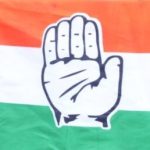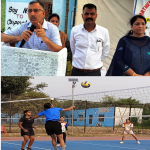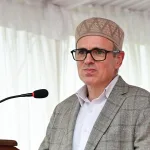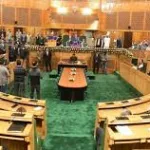SAME-PAGE POLITICS
On November 17, 2015 Congress leader Mani Shankar Aiyar embarrassed India in Pakistan. While Participating in debate on a TV channel the anchor asked him what is to be done to end the stalemate in the relations between the two nations, Aiyar responded, “The first and the foremost thing is to remove Modi. Only then can the talks move forward. We have to wait for four more years. They (panelists) are all optimist and that we can move forward when Modi sahab is there, but I don’t think so.”
He further said, “Bring us (the Congress) back to power and remove them. There is no other way” Aiyar said, “You need to remove Modi, otherwise talks will not move forward.” This was widely reported and in its typical style tried to deflect attention from the subject. Having failed third time in a row to dislodge strongly popular Prime Minister Narendra Modi from the chair Pakistan has got involved in the current Assembly election to help its ‘political assets’.
When the Defence Minister of Pakistan Khwaja Asif claims that the Congress party, National Conference party, and Pakistan are all on the same page on restoring Article 370 and 35A in Jammu and Kashmir, he essentially recognizes the unpopularity of NC-Congress combine. The fear of their loss in election scares him and his country.
Campaign push
As elections in Jammu and Kashmir are in full swing with impressive voter turnout recorded in the first phase, a situation visibly unfavorable to NC-Congress combine- Khwaja Asif states, “They (the alliance) have made it an election issue. Pakistan and the National Conference-Congress alliance are on the same page in Jammu and Kashmir to restore Article 370 and 35A”.
This is clearly aimed to ask Pakistan sympathizers to vote for INDI Block. It is now for the people of Jammu Kashmir to decide who they shall support. Shall Jammu Kashmir be pushed to another cycle of death and destruction or shall the people be allowed to live in peace, progress according to their potential and develop alongside rest of the country.
There is nothing new or unknown in the statement of Khawaja Asif, the Defence Minister of Pakistan. It has always been an open secret and NC Congress by their actions has repeatedly reaffirmed this notion.
One can argue for academic discussions that there is difference between Pakistani government and people of Pakistan. Similarly Families controlling NC and Congress does not represent the sentiment of entire congress party. There however is no utility of such rhetoric in hard politics. Pakistan represented by its federal Minister has delivered a message during the election. It is as good as campaigning for the alliance.
Result of the election will be out on October 8, 2024 and we will come to know to what extent Pakistan succeeded in impacting the outcome of election. But durable effect of this statement will be visible for longer time to come.
Same-Page politics
Pakistani Defence Minister Khwaja Asif claiming “Congress party, National Conference party, and Pakistan are all on the same page when it comes to restoring Article 370 and 35A in Jammu and Kashmir is unblemished in conveying that when it comes to Kashmir all of them have the same amount of knowledge, have the same kind of understanding about situation.
Jammu Kashmir like several other similar parts of the country has paid heavy price for this ‘same page’ politics. It in fact began before partition of the country in 1947. Even the violent process that led to the division of British India into the independent countries of India and Pakistan can be attributed to it in one way or the other. The partition resulted in unnatural and untimely death of millions of people and a massive population movement, with millions of people crossing the hastily drawn borders to be on the “right” side.
The self-seeking leaders who were in agreement with each other or in harmonious working relationship with imperial power managed to spinoff others, who were eminent, affectionate, cherished, and sensitive and connected with common masses. They accomplished the task of attaining power and used same-page theory to stay in power not for people but for their own and their progenies. This gave rise to dynastic politics.
This harmonious working relationship continued between remnant power centres even after painful and gory partition. Sheikh Mohd Abdullah sending G.M. Sadiq to Lahore, in his own words “to meet the Prime Minister of Pakistan, Mr Liaquat Ali Khan” to tell “Pakistan that the decision must not be imposed on the people of Jammu and Kashmir but they should be given a chance to decide their own fate”. “There was no agreement on that, so Sadiq returned and, soon after, the raids began and the picture changed” claimed Sheikh Abdullah in an interview with Prem Shankar Jha in 1968.
Air Marshal K. C. Cariappa son of the first Commander-in-Chief of the Indian Army, Field Marshal K. M. Cariapp has claimed in biography of his father that “Gen. Cariappa asked Nehru the reasons for the ceasefire. “You see, U.N. Security Council felt that if we go any further it may precipitate a war. So, in response to their request we agreed to a ceasefire,” Nehru said. But he sportily added, “Quite frankly, looking back, we should have given you ten-fifteen days more. Things would have been different then.”
Gen. Cariappa was leading the Indian Army in Kashmir during the first war with Pakistan in 1947. The biographer recalls his father often being asked why the army did not evict the frontier tribesmen who, supported by the Pakistan Army, attacked India. The General used to reiterate that the government dictated policy. The Army was quite confident of clearing Kashmir. But the orders were to “cease fire midnight 31st December/1st January 1948-49.”
Very clearly these same-page parties surrendered more than one half of the Jammu Kashmir state in 1947-48. They signed the highly lop-sided IWT to detriment of J&K citizens. The Tulbul Project a “navigation lock-cum-control structure” at the mouth of Wular Lake, for example could not be completed due to disputed IWT. The project was aimed to regulate the release of water from the natural storage in the lake to maintain a minimum draught of 4.5 feet (1.4 m) in the river up to Baramulla during the lean winter months ensuring required water for Lower Jhleum power project.
Again in 1965 Hajipir was returned back to Pakistan a serious security lapse for which we continue to pay a heavy price. In 1971, they surrendered at Shimla and gave Chhamb and Shakargarh bulge back; returned Pak POWs to Pakistan without bargaining for the return of our own POWs numbering around fifty. Strategic blunder at Sharm-el-Sheikh known as Manmohan Singh’s Balochistan blunder and almost agreed to handover Siachen to Pakistan.
There are other numerous stories of this same page politics all conveying the message of betrayal and conceding the interests of Bharat and people of Jammu Kashmir. They have joined hands once again. It is time to be cautious.
(The Author is a former member of the Legislative Council of Jammu &Kashmir and spokesperson of BJP JK-UT)








